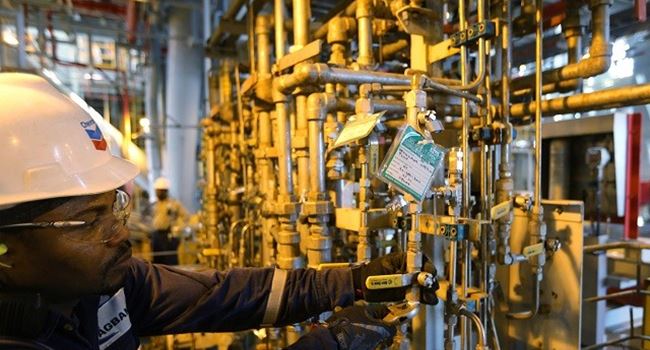Business
Manufacturing sector contracts in May, first time in three years –CBN

Nigeria’s manufacturing sector recorded a contraction for the first time in the just concluded month of May after recording growth for 36 consecutive months, data obtained from the website of the Central Bank of Nigeria (CBN) on Monday and prepared by its statistics department has shown.
The manufacturing sector of Africa’s largest economy has been at the mercy of supply chain disruption, limited business operations and subdued output due to the coronavirus pandemic and acute shortage of foreign exchange for raw materials import on account of steep fall in Nigeria’s external reserves partly induced by fall in oil revenue.
The CBN Purchasing Manager’s Index (PMI) Survey Report for May 2020, which measured the prevailing direction of economic trends in the manufacturing and service sector, demonstrated that the Manufacturing PMI for May was 42.4 index points.
A composite PMI above 50 points implies that the manufacturing/non-manufacturing economy is generally expanding, 50 points signals that there is no change while below 50 points indicates that it is generally shrinking.
“The respondents were purchasing and supply executives of manufacturing and non-manufacturing organizations in all 36 states in Nigeria and the Federal Capital Territory (FCT).
“The Bank makes no representation regarding the individual companies, other than the information they have provided,” the document read in part.
Read also: CBN forecasts contraction in Nigeria’s economy for Q2
Of the 14 subsectors surveyed, only the electrical equipment sector posted a growth while the rest 13 subsectors experienced contraction in the following order of cement; petroleum & coal products; printing & related support activities.
Other sectors that reported declines include furniture & related products; textile, apparel, leather and footwear; paper products; fabricated metal products; food, beverage & tobacco products; chemical & pharmaceutical products; transportation equipment; plastics & rubber products; non-metallic mineral products; appliances and components and primary metal.
The production level index for the manufacturing sector fell to 44.5 points in May after appreciating for 37 months in a row.
One subsector witnessed improvement in production level, four were stagnant while the remaining nine sectors experienced a drop in production.
The New Orders Index fell for the first time in 37 months to 42.8 points.
However, the Manufacturing Supplier Delivery Time Index rose to 65.5 points in May, translating to improvement in supplier delivery time. It had earlier recorded a negative growth in March.
Join the conversation
Support Ripples Nigeria, hold up solutions journalism
Balanced, fearless journalism driven by data comes at huge financial costs.
As a media platform, we hold leadership accountable and will not trade the right to press freedom and free speech for a piece of cake.
If you like what we do, and are ready to uphold solutions journalism, kindly donate to the Ripples Nigeria cause.
Your support would help to ensure that citizens and institutions continue to have free access to credible and reliable information for societal development.
























